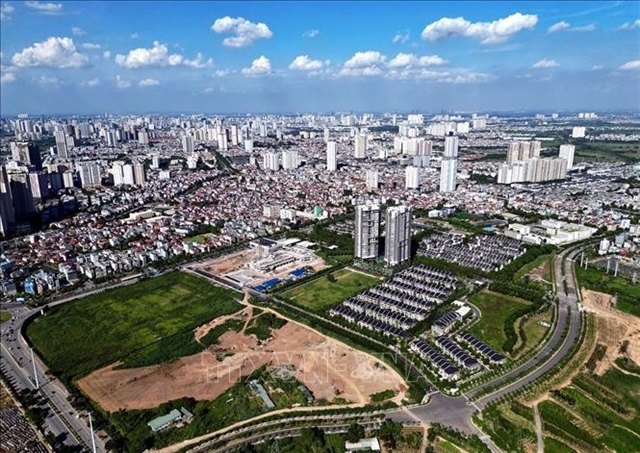HCM City against micro apartments
HCM City against micro apartments
HCM City has proposed that the Ministry of Construction not allow the development of commercial apartments with area less than 45sq.m.

The city is concerned that the construction of small-d apartments may lead to the creation of slums.
The municipal People’s Committee said the southern city had witnessed a rapid urbanisation rate and increase in population, adding that building commercial apartments with area less than 45sq.m would speed this up further.
This would intensify pressure on the city’s social and technical infrastructure system, which was already overloaded, disrupt overall planning and pose a risk of the small-d apartments turning into slum areas.
HCM City said until a set of national technical apartment standards was issued, the city would apply the existing standards, according to which commercial apartments must have a minimum area of 45sq.m and apartments in social housing projects must be at least 25sq.m.
In response, the HCM City Real Estate Association proposed that the southern city allow the development of less than 45sq.m apartments, however, the percentage of these small-d apartments should be capped at 25-30 per cent of the total units in a building.
Le Hoang Chau, the association’s chairman, said the city has high demand for social housing projects and affordable small-d commercial apartments with one or two bedrooms.
At a recent working session of the HCM City Real Estate Association and the Central Economic Commission, Chau said housing prices were currently much higher than the income of a majority of citizens.
Chau estimated that housing prices in Viet Nam were some 25 times higher than the average income, adding that in South Korea, the gap was just 5-7 times, in comparison.
The Government should encourage the construction of homes that meet the housing demand of a majority of citizens, Chau said.
He added that projects of small-d apartments should be developed in the suburb areas and proper management should be undertaken to prevent them from turning into slums.
According to Nguyen Manh Ha, former director of the Housing and Real Estate Management Department, apartment area was not the main factor that decided living quality.
Ha said design and surrounding infrastructure were of more importance, adding that a studio apartment with good facilities and infrastructure would be much better than houses with areas of hundreds of square metres but lacking facilities.
“I think small-d apartments with good quality will not turn into slums,” he said.
Given the high market demand coupled with the average income of Vietnamese, the development of 25sq.m apartments was necessary because this type of living space was affordable for a majority of citizens, Ha said.
Early in May, the Ministry of Construction issued a document permitting the construction of commercial apartments with minimum area of 25sq.m to meet the rising housing demand of single people, low-income earners and nuclear families in urban areas, especially in areas surrounding industrial zones.
The southern city has a population of 13 million.
Statistics of the municipal Department of Construction, early this year, revealed that the city had nearly 480,000 households that did not own a home, 300,000 households that required social housing apartments on rent and 143,000 low-income households.


























